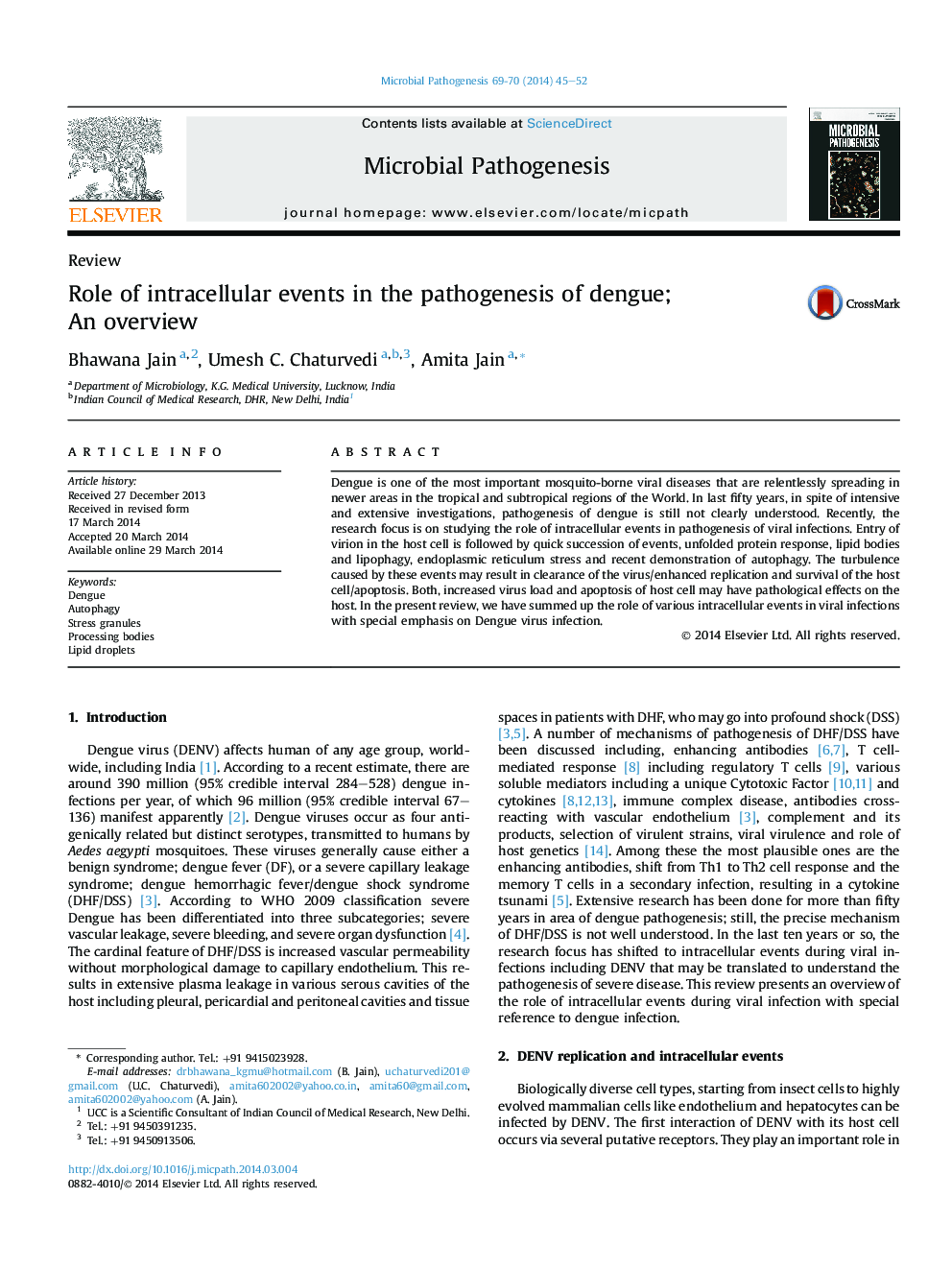| Article ID | Journal | Published Year | Pages | File Type |
|---|---|---|---|---|
| 3416607 | Microbial Pathogenesis | 2014 | 8 Pages |
•Role of intracellular events is very important in dengue virus (DENV) infection.•Endoplasmic reticulum (ER) is the key point to provide double membrane structures.•DENV exploits autophagy to increase its replication.•Assembly of Stress granules is decreased to increase DENV survival in host cells.•Unfolded protein response (UPR) also plays a critical role.
Dengue is one of the most important mosquito-borne viral diseases that are relentlessly spreading in newer areas in the tropical and subtropical regions of the World. In last fifty years, in spite of intensive and extensive investigations, pathogenesis of dengue is still not clearly understood. Recently, the research focus is on studying the role of intracellular events in pathogenesis of viral infections. Entry of virion in the host cell is followed by quick succession of events, unfolded protein response, lipid bodies and lipophagy, endoplasmic reticulum stress and recent demonstration of autophagy. The turbulence caused by these events may result in clearance of the virus/enhanced replication and survival of the host cell/apoptosis. Both, increased virus load and apoptosis of host cell may have pathological effects on the host. In the present review, we have summed up the role of various intracellular events in viral infections with special emphasis on Dengue virus infection.
